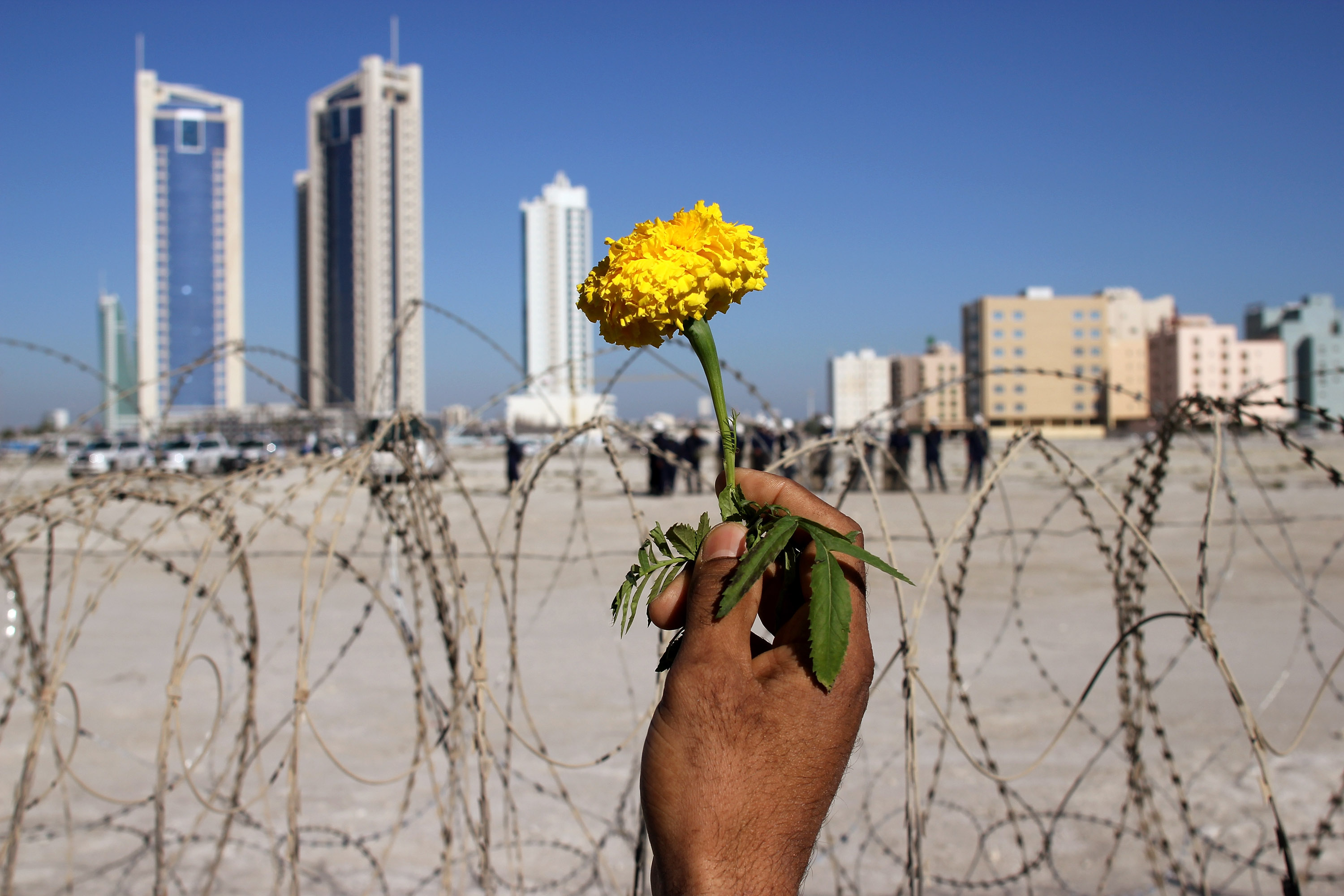
MANAMA, BAHRAIN – FEBRUARY 19: A person holds a flower in front of a barbed wire fence as anti-government demonstrators re-occupy Pearl roundabout on February 19, 2011 in Manama, Bahrain. (Photo by John Moore/Getty Images)
Protesters took to the streets across the Arab world in 2011, pushing their leaders to end decades of oppression.
The Middle East and North Africa was engulfed in an unprecedented outburst of popular protests and demand for reform. It began in Tunisia and spread within weeks to Egypt, Yemen, Bahrain, Libya and Syria.
Long-standing authoritarian leaders were swept from power, including Hosni Mubarak in Egypt and Zine el-Abidine Ben Ali in Tunisia.
Many hoped that this “Arab Spring” would bring in new governments that would deliver political reform and social justice. But the reality is more war and violence, and a crackdown on people who dare to speak out for a fairer, more open society.
At some point we decided to stop being silent and our resolution started. – Hussein Ghrer, human rights activist, Syria
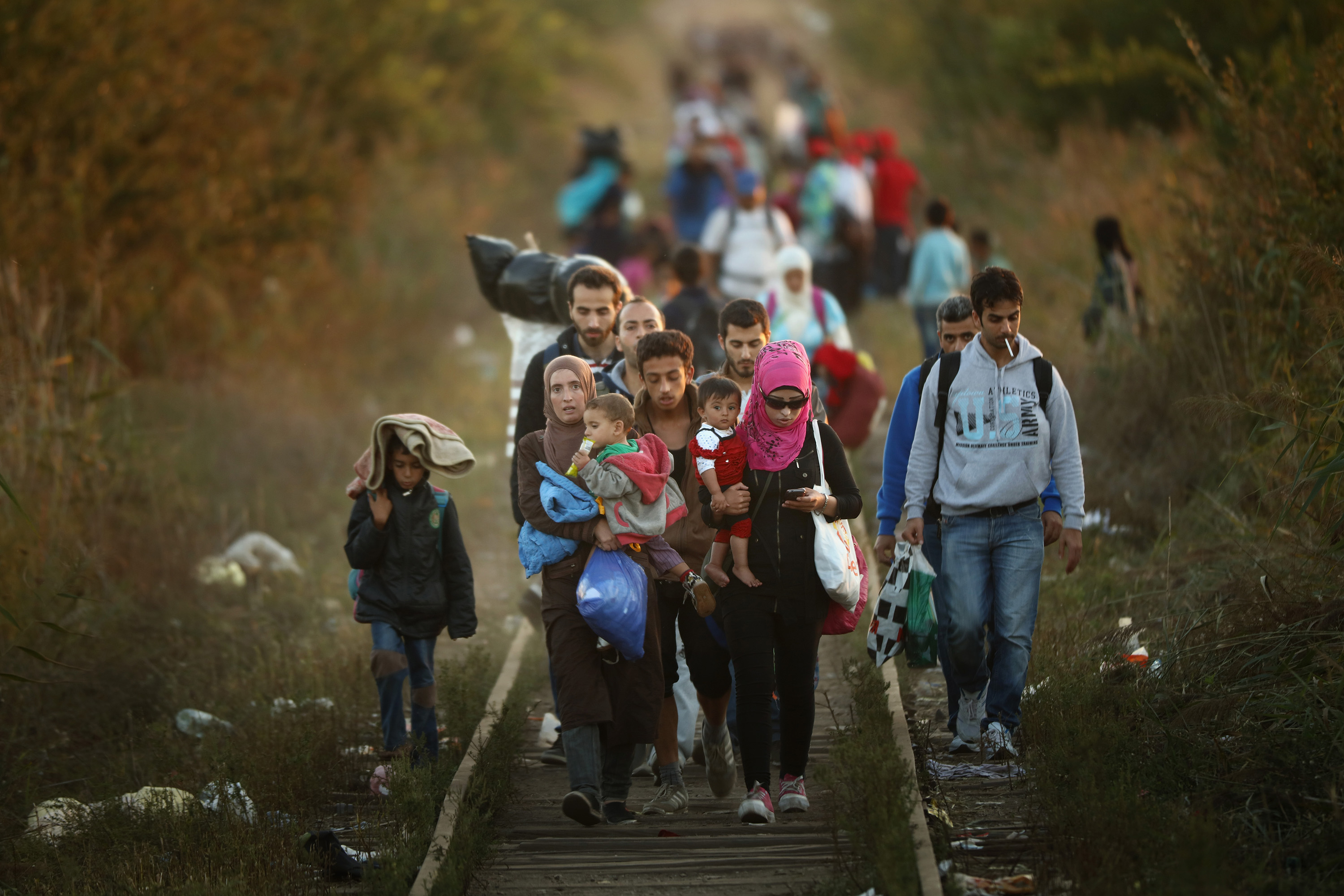
SUBOTICA, SERBIA – SEPTEMBER 09: Migrants make their way through Serbia, near the town of Subotica, towards a break in the steel and razor fence erected on the border by the Hungarian government (Photo by Christopher Furlong/Getty Images)
What happened next?
Five years later, human rights are under attack across the region. Hundreds of thousands of people, many of them children, have been killed during armed conflicts that continue to rage in Syria, Libya and Yemen. The Syrian conflict has created the largest refugee crisis of the 21st century.
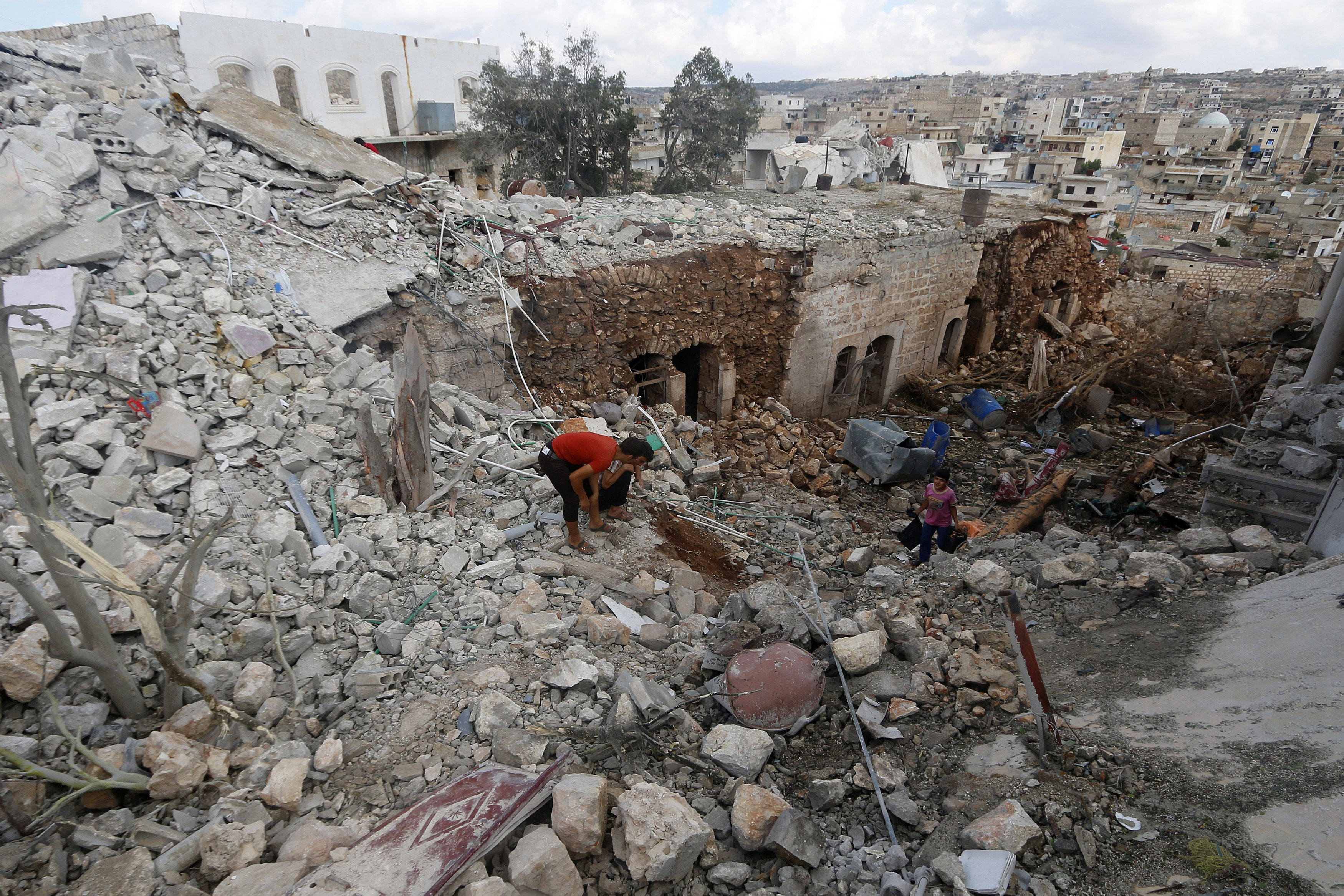
Civilians inspect a site hit by what residents said were airstrikes carried out by the Russian air force in the town of Darat Izza in the province of Aleppo, Syria, October 7, 2015. REUTERS/Ammar Abdullah – RTS6T8N
In Syria, Egypt, Bahrain and other countries, governments are attacking free speech by locking up human rights activists, political opponents and critics, often in the name of counter-terrorism. What’s more, few have been brought to justice for the violence, killings and torture which took place during and after the protests of 2011.
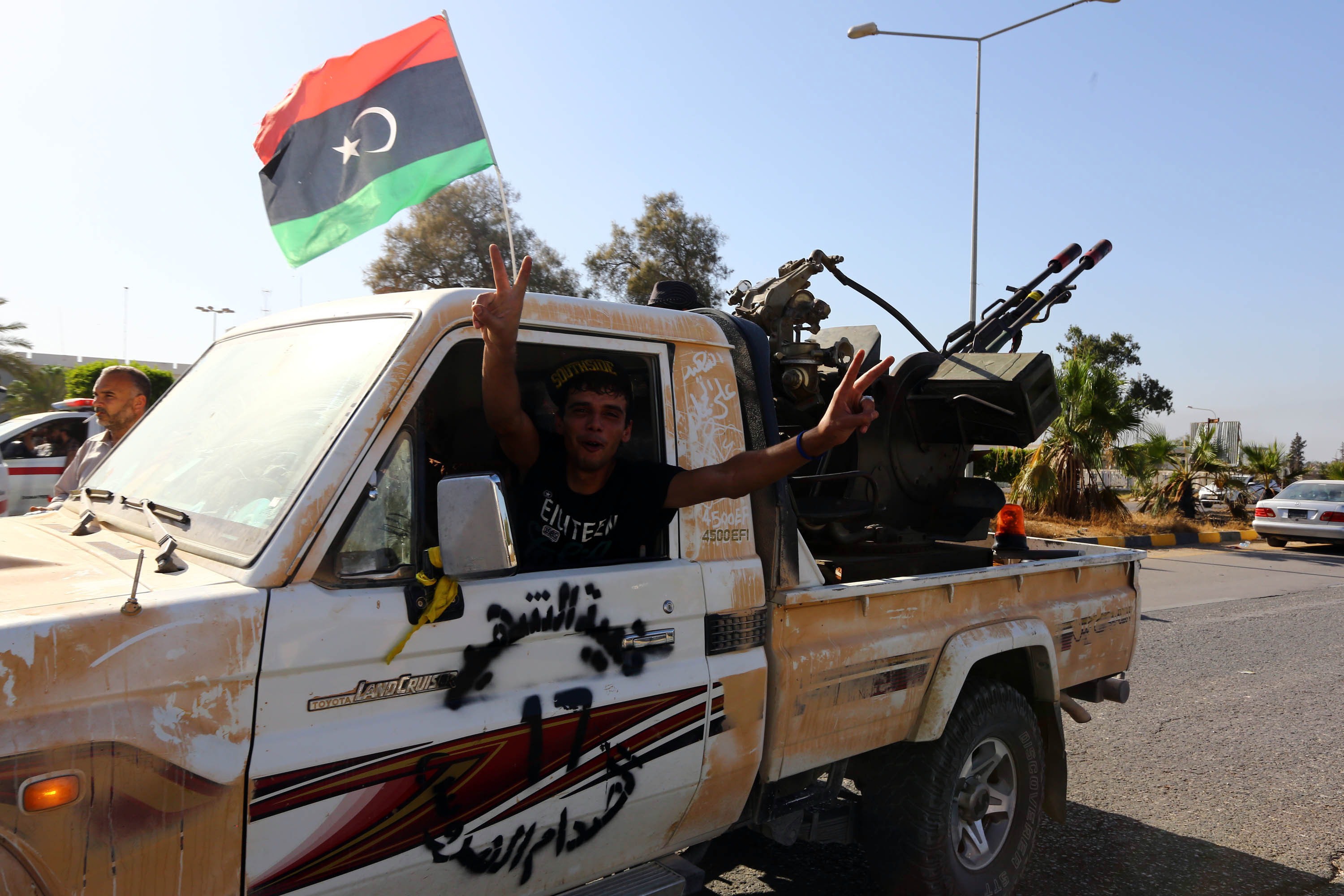
An Islamist fighter from the Fajr Libya (Libyan Dawn) coalition flashes the V sign for victory at the entrance of Tripoli international airport on August 24, 2014, after capturing it from Zintan force, allies of rogue general Khalifa Haftar, following many days of clashes.
Bahrain after the “Arab Spring”
When mass protests demanding reform broke out on 14 February 2011, they were met with violence from the Bahraini security forces. Since then, the country has become increasingly politically polarized, and those who have dared to speak out about the tragic human rights situation in the country have been punished.
Five years on, the people of Bahrain are still waiting for justice. Security officers act is if they have little fear of ever being held to account. -Amnesty International
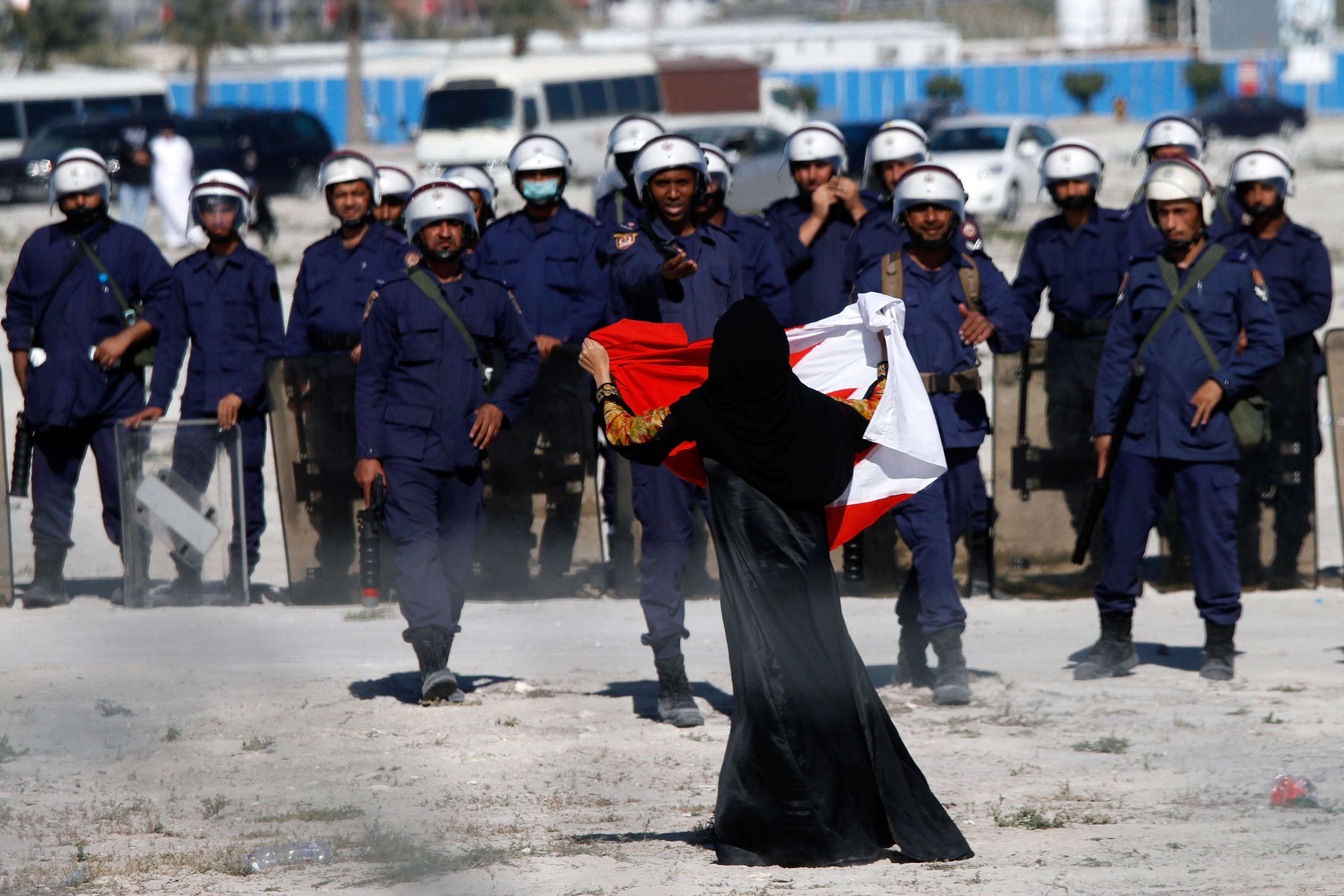
MANAMA, BAHRAIN – FEBRUARY 19: An anti-government protestor gestures in front of police as demonstrators re-occupy Pearl roundabout on February 19, 2011 in Manama, Bahrain. (Photo by John Moore/Getty Images)
Following the protests, the King set up the Bahrain Independent Commission of Inquiry (BICI), headed by independent international experts, to investigate crimes committed by the security forces. He publicly committed to implement its recommendations, which included the need to prosecute those responsible for torture and other serious human rights violations. Five years on, the people of Bahrain are still waiting for justice for both past and current abuses. Security officers act is if they have little fear of ever being held to account.
The Bahraini authorities have continued to crack down on dissent, and increasingly target people who take to social media to criticize the government. Protesters are met with tear gas and shotgun pellets, and some are beaten, arrested and jailed, often after unfair trials. People waiting to face trial have been tortured. And opposition political leaders – mostly belonging to the Shi’a majority population – are imprisoned.
Since 2011, the Bahraini authorities opened cases against a number of officers for fatally shooting protesters. In some cases, investigations were closed without anyone being prosecuted. Several officers were acquitted on the grounds that they acted in “self-defence” and a small number received prison sentences of up to 10 years, reduced on appeal to between six months and three years.

Egypt after the “Arab Spring”: 7 key facts
1. When the “25 January Revolution” erupted in 2011, Egyptian security forces, including riot police, police snipers and plain-clothed state security officers, as well as “thugs” working for supporters of ruler Hosni Mubarak, responded violently. At least 840 protestors were killed and more than 6,000 injured in 18 days.
2. In July 2013, the army backed the overthrow of Mohamed Morsi, Egypt’s elected president, just a year after he took office. They launched a brutal crackdown on critics including Morsi’s supporters and the Muslim Brotherhood – a political and social group whose supporters were elected to Egypt’s presidency and parliament in 2011 and 2012. The crackdown has continued under army general Abdel Fattah al-Sisi, who was elected president in May 2014.
3. Around 1,000 people were killed on 14 August 2013 in protests at Rabaa al-Adawiya Squareand across Egypt, according to the government. Many believe the death toll is far higher. The authorities have still not done enough to investigate hundreds of deaths caused by the security forces since 2013.
[President al-Sisi] has praised the youth of this country, yet so many of them are languishing in jail. -Brother of Mahmoud Hussein, who has spent over 700 days detained without charge or trial.
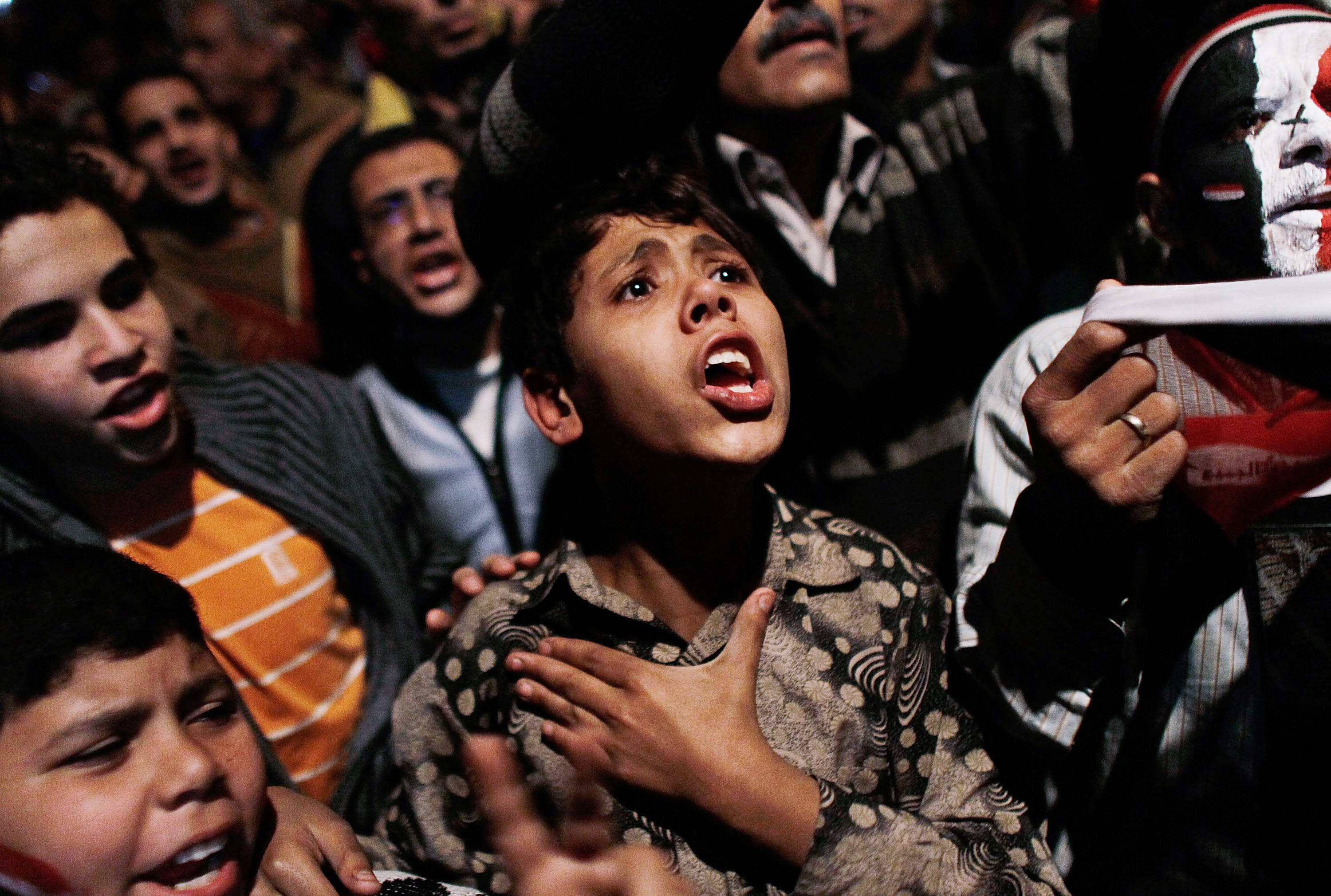
CAIRO, EGYPT – FEBRUARY 11: A boy sings in Tahrir Square after it is announced that Egyptian President Hosni Mubarak was giving up power February 11, 2011 in Cairo, Egypt. (Photo by Chris Hondros/Getty Images)
4. Tens of thousands of Morsi supporters, Muslim Brotherhood members and other government critics have been locked up, many in cramped and harsh conditions. Hundreds have beensentenced to death, including former president Morsi, or face long prison terms after massively unfair trials.
5. The authorities continue to crack down on free speech and the right to meet and assemble peacefully. They arrest and imprison journalists and online critics, and harass human rights groups.
6. New repressive laws have been introduced, including one which effectively bans protests. There’s also a new counter-terrorism law which gives the president emergency-style powers to “take necessary measures to ensure public order and security”, as well as imposing heavy fines on journalists whose reporting on “terrorism” differs from official statements.
7. Violence has spread across the country. In October 2015, more than 200 people were killed after a Russian airliner exploded over Sinai; many said it was brought down by a bomb. Egypt’s Public Prosecutor in Cairo and judges in northern Sinai were also killed in attacks claimed by armed groups, threatening the independence of the judiciary.
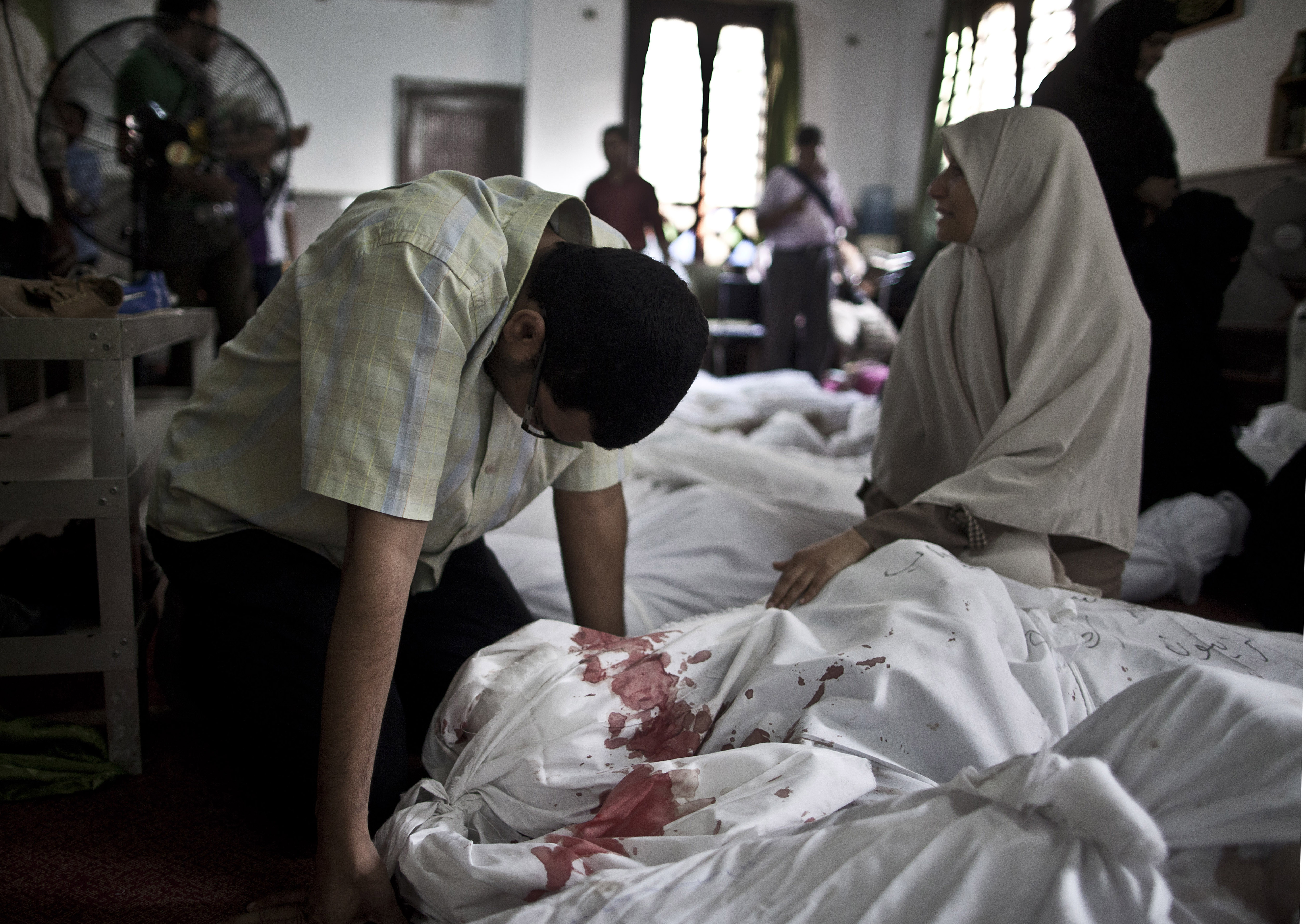
Egyptians mourn over a body wrapped in shrouds at a mosque in Cairo on August 15, 2013, following a crackdown on the protest camps of supporters of ousted Islamist president Mohamed Morsi the previous day. AFP PHOTO / MAHMOUD KHALED
Spotlight on Tunisia: The good…
Since the 2011 uprising, known as the “Jasmine revolution”, Tunisia has been widely viewed as the only success story of the “Arab Spring” protests, and has taken a number of major steps to support human rights.
Tunisians have adopted a new constitution which protects many important human rights, such as the freedom to speak out and to meet up freely, and bans torture. They have also elected a new parliament and president. Activist organizations and NGOs have flourished.
Some former officials have been tried and jailed for their roles in the violent response to the protests. A “truth and dignity” commission has also been set up to address crimes committed during the previous regime.
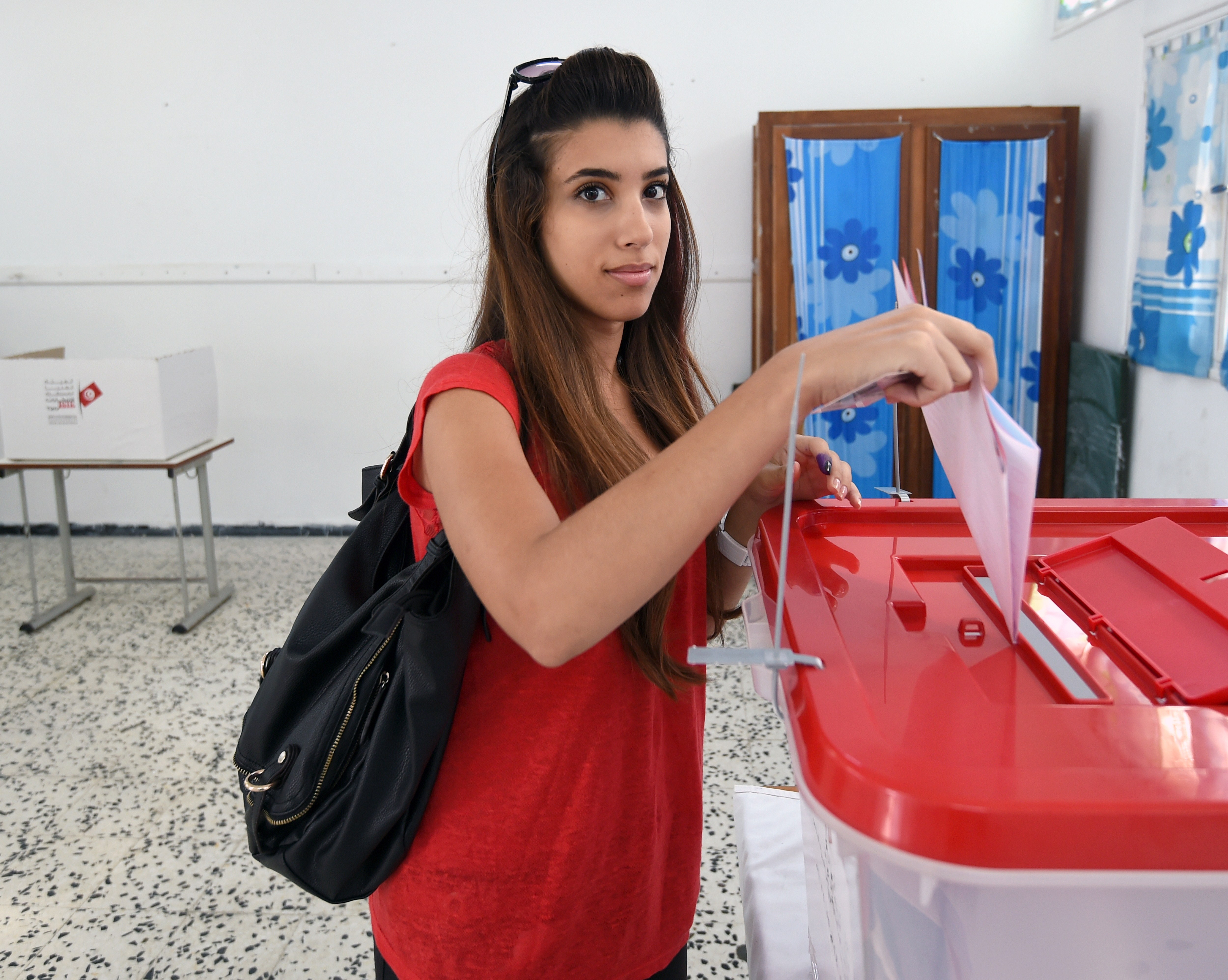
A Tunisian woman casts her vote in the country’s first post-revolution parliamentary election on October 26, 2014 at El-Manzeh VI School turned into a polling station in the Tunis suburb of Ariana. AFP PHOTO / FETHI BELAID
…and the bad
Despite modest progress, the situation remains fragile. Hundreds of people were arrested afterdeadly attacks claimed by the armed group calling itself Islamic State. Many feared the authorities were abusing emergency measures.
In July 2015, the government passed a draconian counter-terrorism law which means people can be detained without charge or access to a lawyer or the outside world for 15 days – putting themmore at risk of being tortured.
We witnessed a few months of revolutionary euphoria… But this didn’t last long. -Lina Ben Mhenni, Tunisian blogger
What’s more, little has been done to reform the security forces who are still torturing people and using excessive force during protests. Very few have been held responsible for their actions.
Free speech is also under threat. The authorities have prosecuted critics, especially those vocal about the security forces. Human rights activists, lawyers and journalists are increasingly criticized for speaking out.
Across the country, the early optimism of the “Jasmine revolution” is disappearing fast. Tunisia must not use fighting terrorism as an excuse to attack basic human rights.
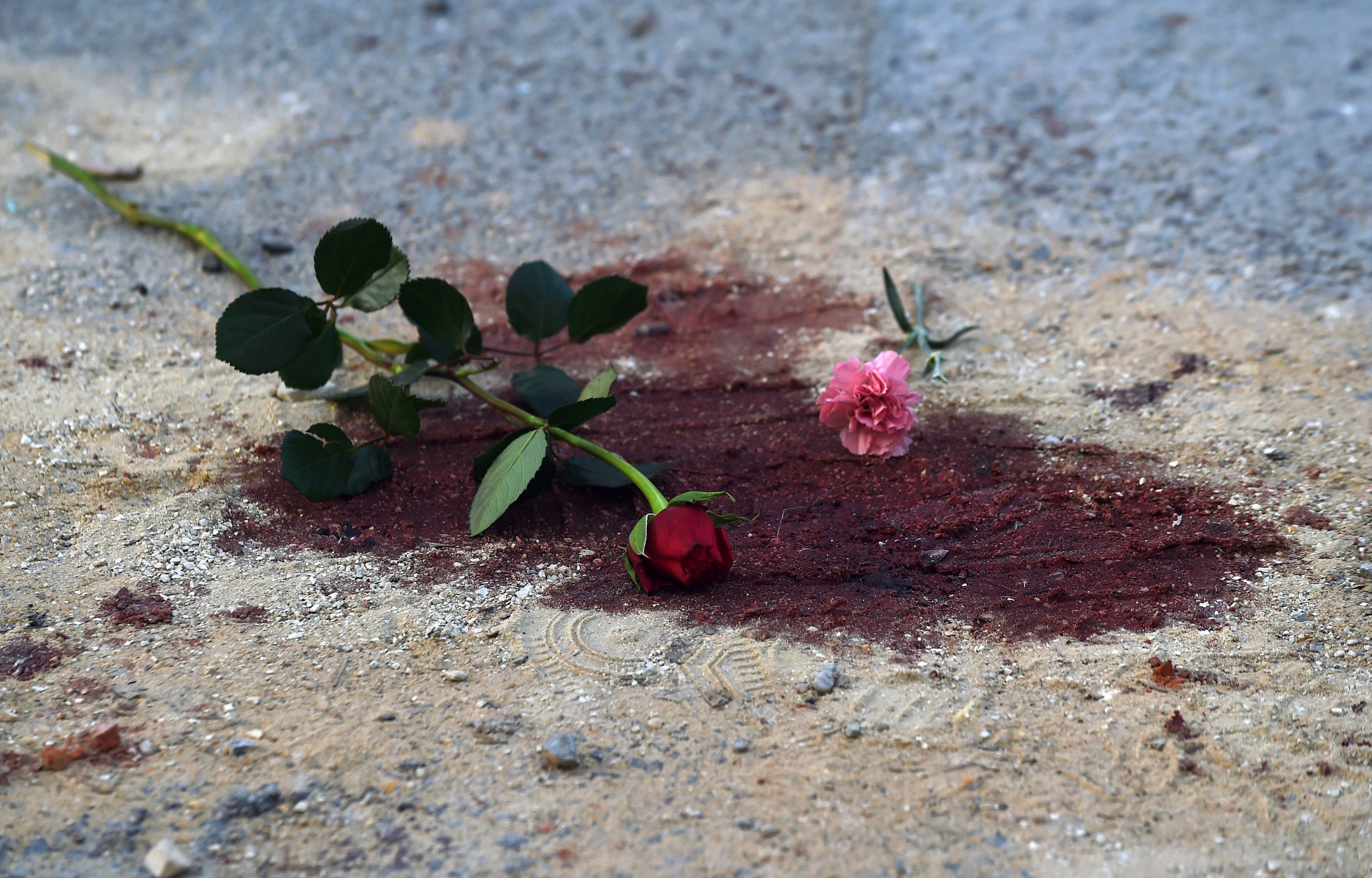
Roses are seen on bloodstains in front of the National Bardo Museum in Tunis on March 19, 2015 during a demonstration in solidarity with the victims of an attack on the museum the previous day killing 21 people. AFP PHOTO /FADEL SENNA